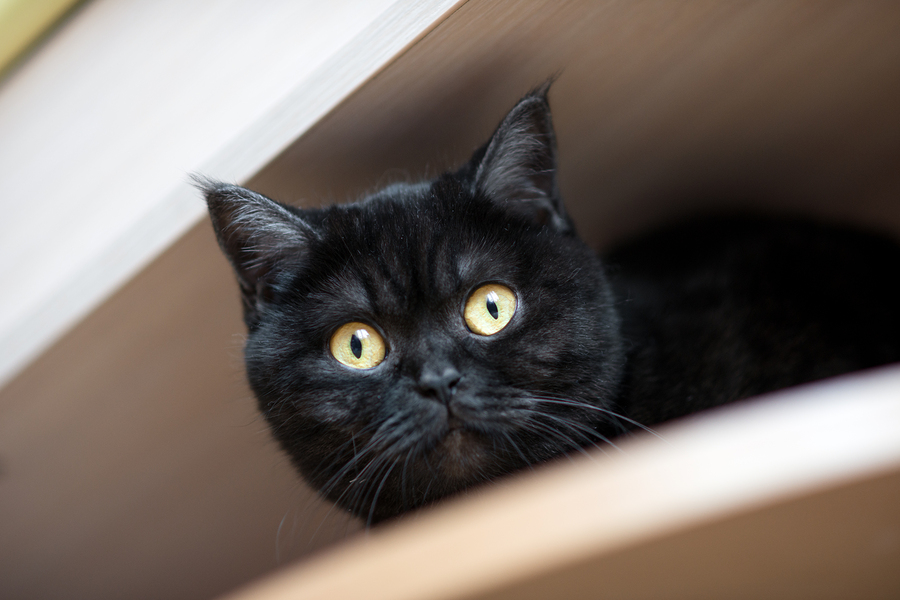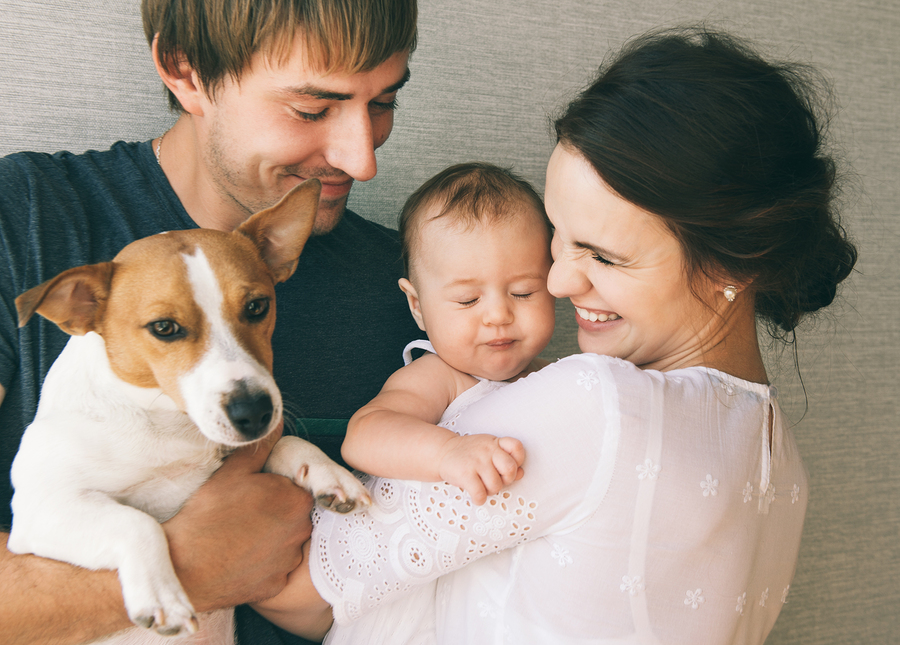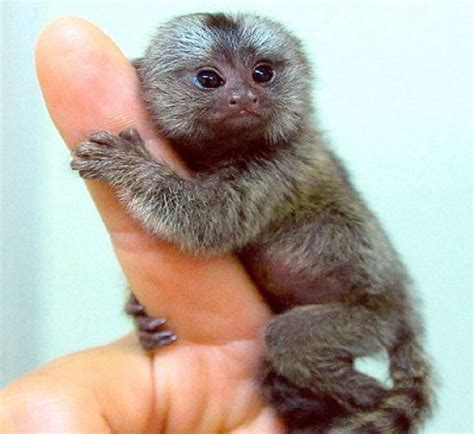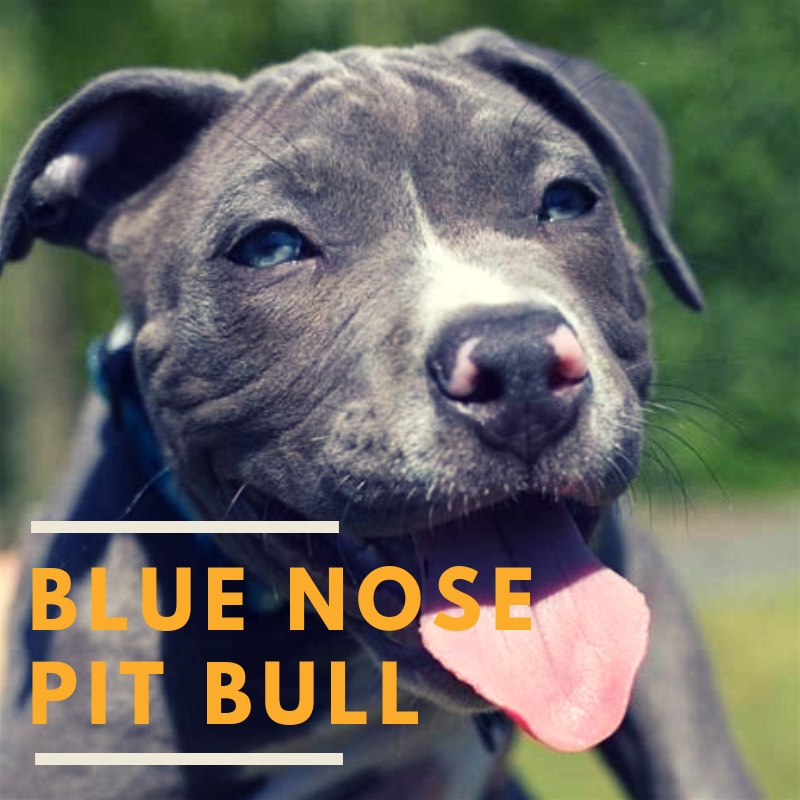Emotional support cats provide emotional support, affection and companionship to their owners who are experiencing mental conditions, like anxiety, stress, depression, mood swings, phobias, or suicidal tendencies. Usually, people look for the following qualities in an emotional support cat:
- Likes to cuddle a lot
- Follows the handler from room to room
- Sits closely around the owner
- Plays around
- A little talkative (with soft voice)
- Purrs occasionally
Of course, the preferred qualities will differ from person to person but the general consensus remains positive about the effectiveness of these qualities in an emotional cat for mental healing.
The best way to choose a cat breed that will suit you emotional needs in the right way is going for one that is good-natured but not too enthusiastic. Emotional support cats should love but also be enough self-sufficient and low maintenance as to not cause their handler stress and too much physical effort. Listed below are the different kinds of cat breeds that act as great companions and emotional supporters for their owners:
Mixed Breeds
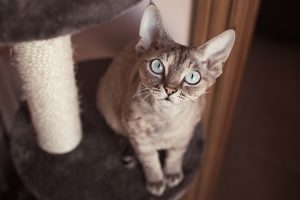 Mixed breeds are less fussy and over 50% of them are certified as emotional support/therapy pets. Moreover, these breeds tend to be more affectionate, low-maintenance, independent and docile, qualities which are great for elders, socially awkward children and people with emotional conditions. Many doctors have reported great improvement in communication skills from patients who spend time interacting, holding and playing with mixed-breed cats.
Mixed breeds are less fussy and over 50% of them are certified as emotional support/therapy pets. Moreover, these breeds tend to be more affectionate, low-maintenance, independent and docile, qualities which are great for elders, socially awkward children and people with emotional conditions. Many doctors have reported great improvement in communication skills from patients who spend time interacting, holding and playing with mixed-breed cats.
Ragdolls
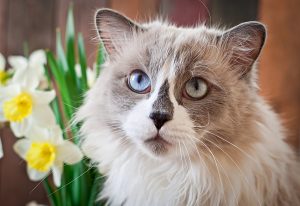 These cats are the height of cuddly affection-lovers. They derive their name from the fact that they go limp whenever picked up, and happily rest quietly on their handler’s lap. Even if they are surrounded with groups of people or children, the Ragdolls maintain their cool and are calm and composed, making them ideal for individuals with anxiety and mood swings.
These cats are the height of cuddly affection-lovers. They derive their name from the fact that they go limp whenever picked up, and happily rest quietly on their handler’s lap. Even if they are surrounded with groups of people or children, the Ragdolls maintain their cool and are calm and composed, making them ideal for individuals with anxiety and mood swings.
Abyssinians
This socialite breed loves to be the center of attention in everything. They are outgoing, intelligent and interactive. Furthermore, the Abyssinians are also highly adaptable, and easy-going with strangers, and on top of that entertaining house mates. Although these cats love affection, potential patients should be these cats tend to be less lap-happy as compared to other cuddlier breeds.
Exotic Shorthairs and Persians
Both these breeds crave human attention. The shorthairs are usually quieter and gentler than their Persian counterparts, but both breeds will gladly environ by their handlers as often as possible. They act as constant emotional support animals because not much tends to surprise these devoted kitties.
American Shorthair
The American Shorthair has one of the most balanced nature, are consistent and normally patient with kids. They bond well with their owners and will continue to provide a nurturing and loving presence.
Sphynx
This hairless cat breed has a curious nature that makes them engaging emotional support pets. Since they have a low body temperature, they love being held close, and are famous for being as loyal as a dog, following their owner from one room to another. People with emotional needs, especially when it comes to being loved, will find great pleasure and solace bonding with this cat breed.
The Birman
Believed to have been originated from Burma, this beautiful cat is a strong and sturdy one with long soft hair. It is also known for its blue eyes, dark spots on its face, ears, tail and legs, and snow-white boots on all its four paws. This breed is loving, gentle and stays quite and out of the way when its handler is busy, which makes it a great breed for people with emotional needs and families with children.
Learn more about the laws that govern therapy animals and see if you quality for an ESA letter today.
Emotional support cats provide emotional support, affection and companionship to their owners who are experiencing mental conditions, like anxiety, stress, depression, mood swings, phobias, or suicidal tendencies.
Usually, people look for the following qualities in an emotional support cat:
Of course, the preferred qualities will differ from person to person but the general consensus remains positive about the effectiveness of these qualities in an emotional cat for mental healing.
The best way to choose a cat breed that will suit you emotional needs in the right way is going for one that is good-natured but not too enthusiastic. Emotional support cats should love but also be enough self-sufficient and low maintenance as to not cause their handler stress and too much physical effort.
Listed below are the different kinds of cat breeds that act as great companions and emotional supporters for their owners:
Mixed Breeds

Mixed breeds are less fussy and over 50% of them are certified as emotional support/therapy pets. Moreover, these breeds tend to be more affectionate, low-maintenance, independent and docile, qualities which are great for elders, socially awkward children and people with emotional conditions. Many doctors have reported great improvement in communication skills from patients who spend time interacting, holding and playing with mixed-breed cats.
Ragdolls

These cats are the height of cuddly affection-lovers. They derive their name from the fact that they go limp whenever picked up, and happily rest quietly on their handler’s lap. Even if they are surrounded with groups of people or children, the Ragdolls maintain their cool and are calm and composed, making them ideal for individuals with anxiety and mood swings.
Abyssinians

This socialite breed loves to be the center of attention in everything. They are outgoing, intelligent and interactive. Furthermore, the Abyssinians are also highly adaptable, and easy-going with strangers, and on top of that entertaining house mates. Although these cats love affection, potential patients should be these cats tend to be less lap-happy as compared to other cuddlier breeds.
Exotic Shorthairs and Persians

Both these breeds crave human attention. The shorthairs are usually quieter and gentler than their Persian counterparts, but both breeds will gladly environ by their handlers as often as possible. They act as constant emotional support animals because not much tends to surprise these devoted kitties.
American Shorthair

The American Shorthair has one of the most balanced nature, are consistent and normally patient with kids. They bond well with their owners and will continue to provide a nurturing and loving presence.
Sphynx

This hairless cat breed has a curious nature that makes them engaging emotional support pets. Since they have a low body temperature, they love being held close, and are famous for being as loyal as a dog, following their owner from one room to another. People with emotional needs, especially when it comes to being loved, will find great pleasure and solace bonding with this cat breed.
The Birman

Believed to have been originated from Burma, this beautiful cat is a strong and sturdy one with long soft hair. It is also known for its blue eyes, dark spots on its face, ears, tail and legs, and snow-white boots on all its four paws. This breed is loving, gentle and stays quite and out of the way when its handler is busy, which makes it a great breed for people with emotional needs and families with children.
Learn more about the laws that govern therapy animals and see if you quality for an ESA letter today.


